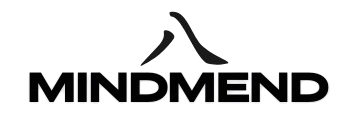Counting in Chinese
When I started physical therapy for my broken ankle, it felt impossible. Every session was like a battle I was losing. The pain was sharp, constant, and unrelenting. Even the simplest movements, things I never thought twice about before, felt completely out of reach. I’d stare at the clock, watching the seconds drag by, convinced there was no way I could survive the full hour. Each stretch, each step, was another wave of discomfort, and I’ll be honest—there were moments I wanted to quit. Healing felt like some distant, unattainable goal, and the pain seemed like it would never let up.
But then, something strange happened during one particularly rough session. I had just started a Chinese I class, so, partly out of desperation and partly just to distract myself, I decided to count my reps in Chinese instead of English—yī, èr, sān, sì… At first, it was just a way to keep my mind off the pain. But soon, I noticed something unexpected. Focusing on these unfamiliar sounds gave my brain something else to chew on, something other than the discomfort. The minutes didn’t feel so endless anymore, and while the pain was still there, somehow, it didn’t seem as overwhelming. By the time I walked out of that session, I was genuinely surprised at how much easier it had felt.
The next day in class, when we reviewed numbers, I nailed it. I knew them better than anyone else. That’s when it hit me: what started as a random coping strategy had accidentally turned into a double win. I found an unexpected way to handle the pain and get better at something I was learning.
Looking back, this little discovery taught me something bigger than just how to count to 10 in Chinese.It showed me how powerful engaging the brain's language center can be when dealing with something tough. By focusing on a task involving new words—simple yet engaging—I activated the part of my brain that processes language, making it harder for the pain to take center stage. It wasn’t magic. The pain didn’t vanish. But it became manageable, and that was enough to get me through.
This whole experience got me thinking about how often we underestimate the small tools we already have to deal with hard situations. For me, it was counting in another language. I became fascinated about learning more—what else could the language center in the brain help people with when things feel overwhelming or unbearable?
What used to feel impossible didn’t just become manageable, it became a point of pride. I realized I was stronger than I thought, both mentally and physically. And that’s the thing: when you are going through something painful, whether it’s physical therapy, a grueling workout, or just life being tough, the tools to push through may be something unexpected for you to discover. You just have to find them. Who knew the Chinese language would become mine?
